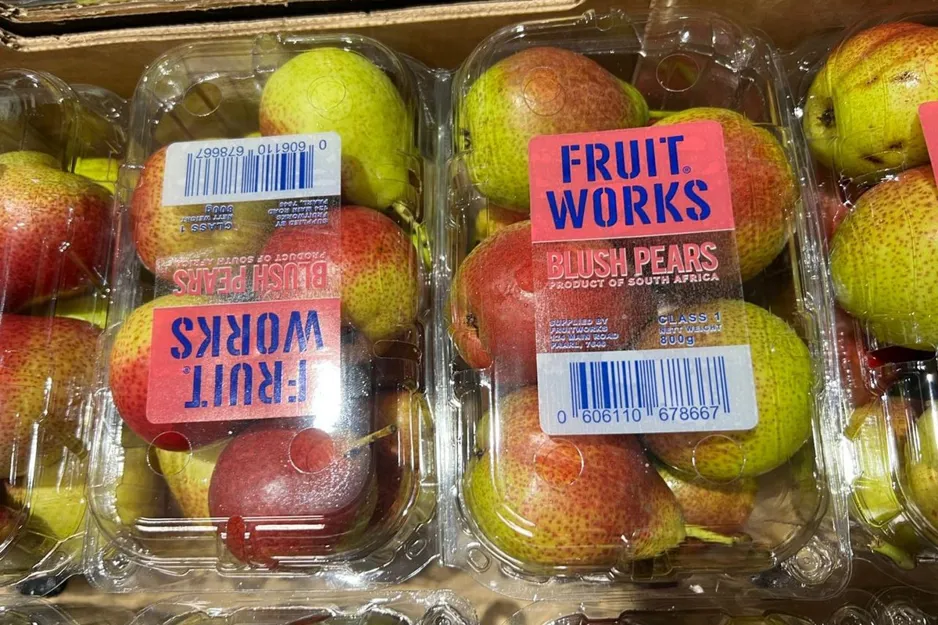India, Singapore, Malaysia as well as Bangladesh remain important markets for South African apples and pears. Eon Smit, commercial director of Fruitworks, based in Paarl says, “Asia Fruit Logistica is a space where we as the three companies come together to spend time, and see our current clients in person. We want to hear how it’s going with their business etc. and to improve our personal relationships. It is not the place to discuss big programs. For us, the relationships and people aspect is key to engage with them. To get a feeling of what’s taking place in their business and markets. We don’t go for new business at the show as such, but every year there are some interesting opportunities that show themselves.”
Fruitworks has offices, which are independent businesses in Singapore named Crownfruit Pte Ltd, and in Malaysia they have Rainbow Fruit. “Fruitworks is a 23-year-old company that focuses on South East Asia. Over the last five to eight years we expanded in the sub-continent, with Bangladesh, India and also the Middle-East. Our main focus is exporting apples and pears from South Africa. We also trade citrus and then table grapes while we send figs, blueberries and strawberries via airfreight. We are seriously engaged in apples and pears, where we can provide good value to our customers and growers.”
Through their business in the two Asian countries, they provide the fruit all year round. “Our offices in Singapore focus on product from around the world to bring to those countries and areas. They also do South African fruit that other exporters from here supply to them, while they also procure from around the world. This includes fruit from Egypt and Spain, apples from Turkey, Poland, France and Italy to name a few. They source from these countries to secure supply all year round. We do our thing and do it well and focus on the detail of what we’re busy with.”
Fruitworks does not have a big focus on China, with Singapore and Malaysia as their constant market focus for pears and apples. “In Singapore their preference is for Packhams, while in other countries in Asia their preference is Forelle and Vermont Beauty. There’s a strong and good demand for Packhams, it’s getting difficult to grow the quality in South Africa that they have a demand for, because they are looking for cosmetically cleaner pears.”
The recent political unrest in Bangladesh had a negative effect on the import fruit market. “The many changes in terms of policy and duties has a big effect on the landed price of the fruit in this market. The riots of a month ago had a negative effect on imports with fruit taking much longer to clear from the port, they could not get people to distribute it.”
Smit says the pricing in the Indian market fluctuates a lot too. “India is a very volatile market, that is affected by volumes and timing of supply. There are times when supply is high, then the market can be weak. However, it’s a growing market for South Africa, but it is not an easy country to understand the people and the culture. Over the last eight years we made a lot of effort to get to know this market, the people and systems etc.”
Following years of work by South Africa’s fruit industry, the steri-protocol to land fruit in India has become more fruit friendly. “It’s easier now to send fruit to India, there’s a lot more competition too. India has over 1,000 importers, but only around 150 are truly engaged in the fruit business and geared for it,” states Smit.
He says Malaysia used to be a market that imported good volumes, which changed after the Covid pandemic. “Malaysia took a dip after Covid. They are not as strong as they were before, you can see it in the lower volumes that they import. We do expect growth in this market, but it will likely look different to what it was. We see the bigger players are getting bigger, with very few new importers. This market has become more conservative in buying than in previous years. There is more of a push strategy than a pull from the market. However, it is a steady market, that remains important for South Africa, especially on apples like Granny’s and some red apple varieties,” concludes Smit.

